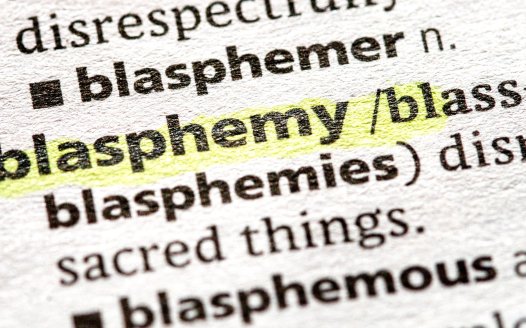Protecting women’s rights is the priority, but that isn’t the only legitimate concern about sharia
Posted: Thu, 3rd Nov 2016 by Benjamin Jones
Gender inequality isn't the only problem with sharia councils, and non-Muslims have every right to object to the foundation of a parallel legal system in the UK, writes Benjamin Jones.
The discrimination against women inherent in sharia is its most objectionable feature. But when considering the impact of sharia councils in the UK, women's rights are not the only consideration, and the debate is not one for Muslims to have solely among themselves, excluding all others with accusations of 'Islamophobia'.
These councils have immense cultural influence in many communities, and by this fact alone they subvert our legal system and the principle of one law for all, whether or not they have any formal legal standing.
If sharia councils operated fully within UK law, they would still pose a profound cultural challenge, and even if they made no pretence at legal power, non-Muslims would still have every right to object to their malign influence.
Even if every single participant in a sharia council was there voluntarily without coercion or social pressure, and even if every ruling and process complied with equality and human rights standards, non-Muslims would still have every right to protest against the fragmentation of our legal system.
How can there be integration if our secular legal system is openly rejected? Putting aside, for a moment, the many implications of sharia for Muslim women, the spread of these councils reeks of separatism – and an Islamist desire to state Islam's power in the physical and political realm.
Muslim women can be powerful advocates for challenging the misogyny inherent in sharia, dominated in its entirety by male judges, but the rest of society has a perfectly legitimate interest in resisting the challenge to our common citizenship and legal system that a now sprawling sharia system poses.
Some say that Muslim women are being patronised by these concerns and by the suggestion that some women don't understand the difference between sharia councils and British law, but it is demonstrably true that many Muslim women don't: The vast number of Muslim women who have only religious 'marriages' is a testament to this. Many of these women wrongly believe their nikah (religious marriage) is legally recognised.
Countless women find themselves penniless, homeless or severely impoverished because of this terrible misunderstanding when they are 'divorced' from their husbands, only to find out that their 'marriage' was legally non-existent.
So it is not patronising to say that some, perhaps a great many Muslim women, do not know the real law from the 'justice' dispensed by local figures they respect.
How many cases of women abused by their 'husbands' never see the light of day because they are 'resolved' by a sharia council and the women think this to be a valid and definitive legal process? How many women are made poor because they have no legal marriage, and no legal rights if their husbands shun them? We can't ever know for sure.
It is not patronising to state these facts or for wider society to have concerns about our fellow citizens.
And society as a whole has an interest in preserving the supremacy of UK law and human rights.
The establishment of quasi-legal organs and the founding of a new legal system in communities across Britain erodes at our common citizenship.
It is, in fact, the foundation of an entirely separate civilization and one of the most blatant manifestations of the 'parallel lives' that ethnically and religiously divided communities across the UK are living.
Shaista Gohir of the Muslim Women's Network, complaining about the approach of a parliamentary inquiry into how sharia operates, said: "There are people who are anti-faith, particularly anti-Islam, who are using women's rights as a guise… anti-faith activists, including feminists, and I'm a feminist myself, who should know better in terms of speaking to Muslim women and finding out what it is that they want."
Gohir said it was a "myth" that sharia was becoming a parallel legal system.
During a Home Affairs Select Committee hearing on sharia, Nusrat Ghani MP said that the UK risked one day becoming like India, where different minorities have their own legal system, and she is right to warn of this. Though this is nowhere near the formal legal situation, it is, arguably, becoming the de facto situation with respect to elements of family law like marriage and divorce.
As Maryam Namazie told the Committee, sharia councils "do call themselves courts" and do call themselves judges. "It doesn't have the force of the law but they do imply that they are the force of the law." The Muslim women who believe their Islamic marriages are legally real is proof enough of this essential point.
This discussion isn't just for Muslims to have within parameters that Muslims find comfortable. As with sharia, as with counter-extremism, Muslim communities can't shut themselves off from society and try to solve these problems internally. Nor should anybody have confidence in their ability to do so.
The effort to silence non-Muslim (and ex-Muslim) critics of sharia, by tarring them as 'Islamophobic', as Naz Shah MP did during the hearing, or calling them "anti-faith" or patronising, does nothing to solve the problem.
Raheel Raza said that this trend of limiting the discussion "is of great concern and this is happening all over the West - liberal, secular voices are being silenced."
Wider society won't put up with it.







